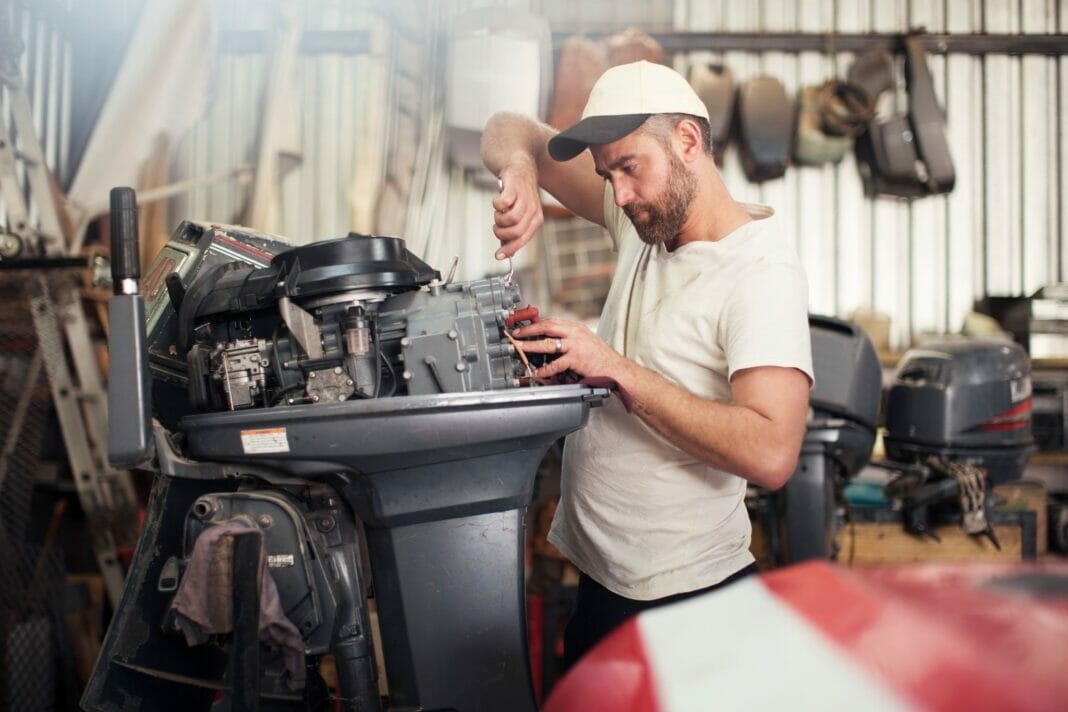As a boat owner, you likely take great pride in the condition of your pride and joy. Given the harsh nature of the marine environment, there is a lot of work that goes into keeping a boat in great shape, both aesthetically and functionally. While you can probably do some of that work on your own, some of it may need to be turned over to a professional.
Finding the line that divides DIY boat maintenance projects from those that need an expert hand can be a bit tricky. And, to be sure, that line is in different places for different people. Below, we’ll take a look at how you can decide when to handle boat maintenance work on your own and when you should bring in outside help to make sure things are done correctly.
The Easy Stuff
As a starting point, there are some maintenance tasks that you should have little trouble handling on your own. Most of these fall into the category of cleaning jobs, such as cleaning out the interior, washing the dirt and grime off the exterior of the boat, vacuuming the carpets (if you have any), cleaning up the anchors, etc. These are basics, and unless you are simply too pressed for time to do any of it, you’ll probably take on this type of upkeep on your own.
The Middle Ground
Most people will have little trouble washing their boat off and doing some of the other standard tasks that help to keep a boat in good condition. As we move past those simple jobs, however, we find ourselves in a bit of a murky middle ground. The types of maintenance we have listed below are going to be within the comfortable reach of some boat owners, while others will feel more comfortable hiring out for these jobs. The key here is to know yourself and to respect your limits – if one or more of these tasks feels like it is beyond your abilities and experiences, don’t take the risk of trying to do it alone.
- Oil changes. Assuming your boat runs on an internal combustion engine, the oil will need to be changed periodically. This is a job that you might feel comfortable with if you have some mechanical know-how, but don’t feel compelled to do it as a DIY job if you aren’t sure you can do it properly.
- Replacing spark plugs. Like an oil change, you might be able to do this one on your own by following along with the instructions that are provided by the owner’s manual.
- Battery maintenance. You always want to make sure your batteries are in good condition when you head out onto the water. Regularly cleaning the terminals and testing the level of the batter level is another moderate project that would be a DIY task.
Leave It to the Pros
Lastly, we should talk about the parts of boat maintenance that are going to need to be left to the professionals in almost every case. Unless you happen to be professionally trained in a way that allows you to do some of the work below, be sure to hire these jobs out so nothing goes wrong. Not only can there be safety concerns with trying to do some of these tasks on your own, but you’ll also get much better, more reliable results if you outsource this work.
- Electrical repairs. Don’t mess with the electrical system on your boat unless you are a qualified electrician. Improper electrical work can leave you vulnerable and will run the risk of a fire.
- Structural repairs. There is an art and science to boat repair and you don’t want to go back out on the water in a boat that hasn’t been repaired correctly because you tried to do it yourself without the necessary qualifications.
- Gelcoat repairs. The gelcoat on the exterior of your boat has an important job to do, and damage can lead to the need for a repair on this layer. Doing so is harder than it looks, so a professional is the better choice in this area.
Staying ahead of maintenance tasks is an important step toward getting the longest, most enjoyable life possible out of your boat. We hope this discussion has helped you decide what parts of the work you are going to do yourself, and what will be trusted to an expert in this area. Good luck and have fun on the water!


